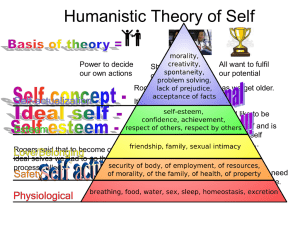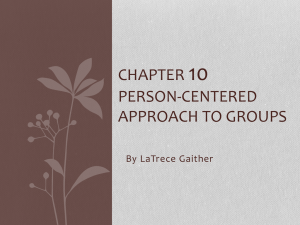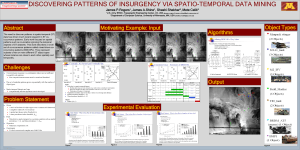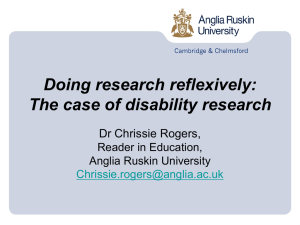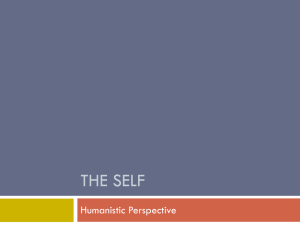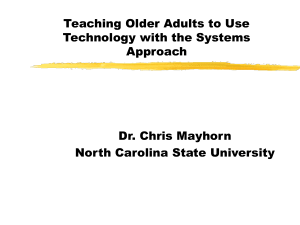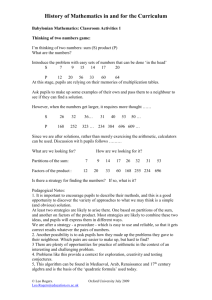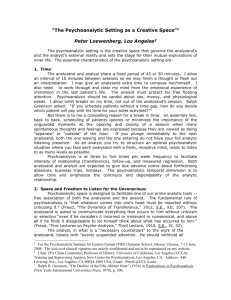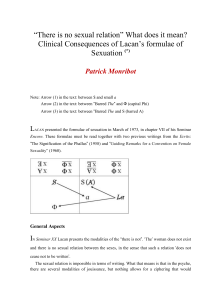Click to read.
advertisement
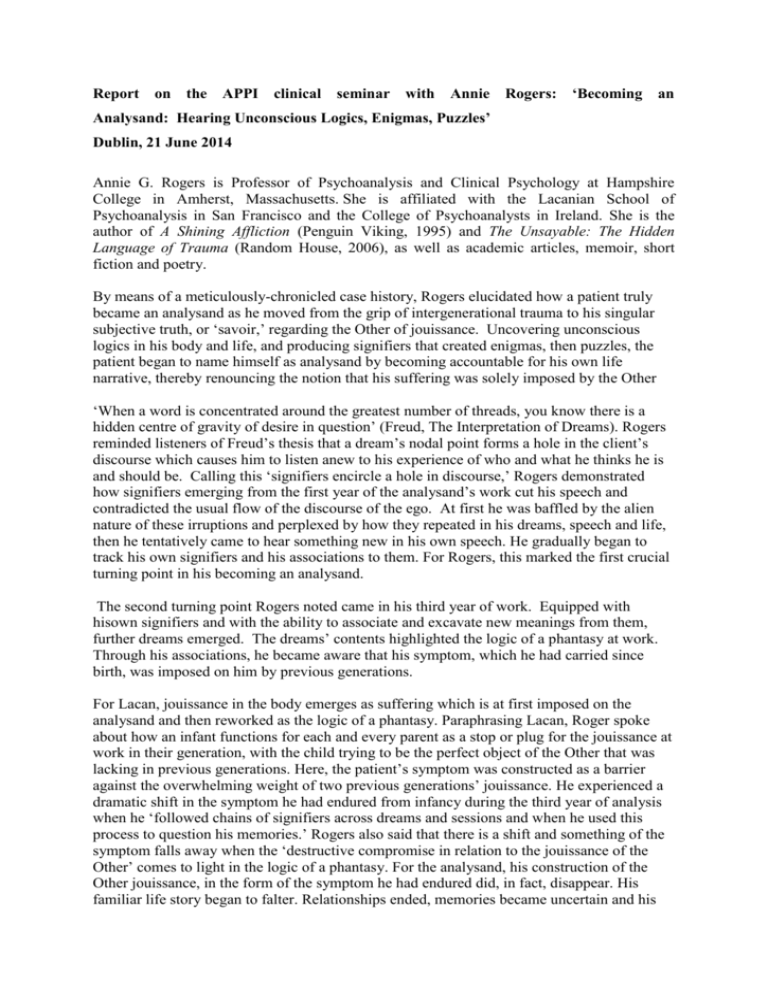
Report on the APPI clinical seminar with Annie Rogers: ‘Becoming an Analysand: Hearing Unconscious Logics, Enigmas, Puzzles’ Dublin, 21 June 2014 Annie G. Rogers is Professor of Psychoanalysis and Clinical Psychology at Hampshire College in Amherst, Massachusetts. She is affiliated with the Lacanian School of Psychoanalysis in San Francisco and the College of Psychoanalysts in Ireland. She is the author of A Shining Affliction (Penguin Viking, 1995) and The Unsayable: The Hidden Language of Trauma (Random House, 2006), as well as academic articles, memoir, short fiction and poetry. By means of a meticulously-chronicled case history, Rogers elucidated how a patient truly became an analysand as he moved from the grip of intergenerational trauma to his singular subjective truth, or ‘savoir,’ regarding the Other of jouissance. Uncovering unconscious logics in his body and life, and producing signifiers that created enigmas, then puzzles, the patient began to name himself as analysand by becoming accountable for his own life narrative, thereby renouncing the notion that his suffering was solely imposed by the Other ‘When a word is concentrated around the greatest number of threads, you know there is a hidden centre of gravity of desire in question’ (Freud, The Interpretation of Dreams). Rogers reminded listeners of Freud’s thesis that a dream’s nodal point forms a hole in the client’s discourse which causes him to listen anew to his experience of who and what he thinks he is and should be. Calling this ‘signifiers encircle a hole in discourse,’ Rogers demonstrated how signifiers emerging from the first year of the analysand’s work cut his speech and contradicted the usual flow of the discourse of the ego. At first he was baffled by the alien nature of these irruptions and perplexed by how they repeated in his dreams, speech and life, then he tentatively came to hear something new in his own speech. He gradually began to track his own signifiers and his associations to them. For Rogers, this marked the first crucial turning point in his becoming an analysand. The second turning point Rogers noted came in his third year of work. Equipped with hisown signifiers and with the ability to associate and excavate new meanings from them, further dreams emerged. The dreams’ contents highlighted the logic of a phantasy at work. Through his associations, he became aware that his symptom, which he had carried since birth, was imposed on him by previous generations. For Lacan, jouissance in the body emerges as suffering which is at first imposed on the analysand and then reworked as the logic of a phantasy. Paraphrasing Lacan, Roger spoke about how an infant functions for each and every parent as a stop or plug for the jouissance at work in their generation, with the child trying to be the perfect object of the Other that was lacking in previous generations. Here, the patient’s symptom was constructed as a barrier against the overwhelming weight of two previous generations’ jouissance. He experienced a dramatic shift in the symptom he had endured from infancy during the third year of analysis when he ‘followed chains of signifiers across dreams and sessions and when he used this process to question his memories.’ Rogers also said that there is a shift and something of the symptom falls away when the ‘destructive compromise in relation to the jouissance of the Other’ comes to light in the logic of a phantasy. For the analysand, his construction of the Other jouissance, in the form of the symptom he had endured did, in fact, disappear. His familiar life story began to falter. Relationships ended, memories became uncertain and his dreams presented enigmas that were, Rogers said, ‘so baffling they won’t fit back into any known life narrative.’ For him, an image pointing to a network of associations about a former site of idealised comfort morphed into ‘a kind of horror,’ what she called ‘a tangle of thoughts leading to something unfathomable.’ During his fifth year of work, a further movement took place. He moved from what Rogers called ‘the edge of the unspeakable’, the enigma at the nucleus of his dreams, to being able to formulate this unknown as a ‘puzzle’. He began to wonder about the puzzles that emerged in his dreams. The analysand could now pose his own questions about the contradictions that surfaced. This ‘combination of question and contradiction’ formed a logic, according to Rogers, who paraphrased his question as ‘Maybe this is not something that the other imposes but rather something that I chose - but why would I choose that?’ He began to examine the part he played in submitting to his suffering and began to question his-tory and his way of living now. Lacan said that with the elaboration of the analysand’s singular truth, the Other emerges gradually as divided and lacking at the site of one’s own unconscious. Once the analysand realises that everything they are reporting is born of the logic of a phantasy into which they are fused, they begin to hear their signifiers as their own unconscious logic. This traversal of phantasy at the imaginary level gives access to desire. Rogers commented that the jouissance that was once feared and reviled, although it lives on in the analysand, becomes recognised as ‘not at all powerful or malevolent but simply as a trace of the legacy of the marks of a psychic separation from the primordial other of our childhood...’. Rogers concluded that although this patient has assembled the components he does not yet know how to traverse the phantasy. For now, he appears well placed to take his own cautious steps to the site of his symbolic unconscious, the circuitous site of the signifiers of his own desire. Thérèse Maguire
